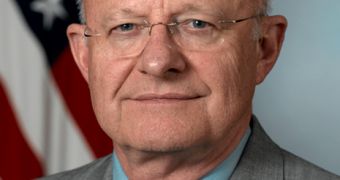James Clapper, director of National Intelligence, has admitted that the US intelligence community should have disclosed details about how the telephone records of US citizens were collected.
“I probably shouldn’t say this, but I will. Had we been transparent about this form the outset right after 9/11 – which is the genesis of the 215 program – and said both to the American people and to their elected representatives, we need to cover this gap, we need to make sure this never happens to us again, so here is what we are going to set up, here is how it’s going to work, and why we have to do it, and here are the safeguards… we wouldn’t have had the problem we had,” said Clapper in an interview for The Daily Beast.
The director of National Intelligence mentions that perhaps the population would have looked at this entire collection program differently if officials had divulged that it was all for national security and to fend off terrorist attacks.
However, both the White House NSA review panel and other researchers have said that they have found no clues in the data from 9/11 and up until now that the telephony metadata program had any type of results when it came to stopping terrorist actions.
Furthermore, Clapper claims that the Snowden leaks have been a painful learning experience for the intelligence community and that there would be no public debate about security versus privacy had the government been forthcoming about what they considered to be necessary following the terrorist attack on September 11.
To justify his opinion, Clapper believes that people would have simply viewed the metadata collection program just as harmless as fingerprints and airport security.
“For me it was not some massive assault on civil liberties and privacy because of what we actually do and the safeguards that are put on this,” he said, explaining in a single phrase that for him the end justified the means.
As far as safeguards go, the congressional watchdog didn’t actually know most of what the NSA had been doing and the FISA court that’s supposed to sign off on the agency’s requests has done nothing more than say “yes” to all its demands over the past few years.

 14 DAY TRIAL //
14 DAY TRIAL //